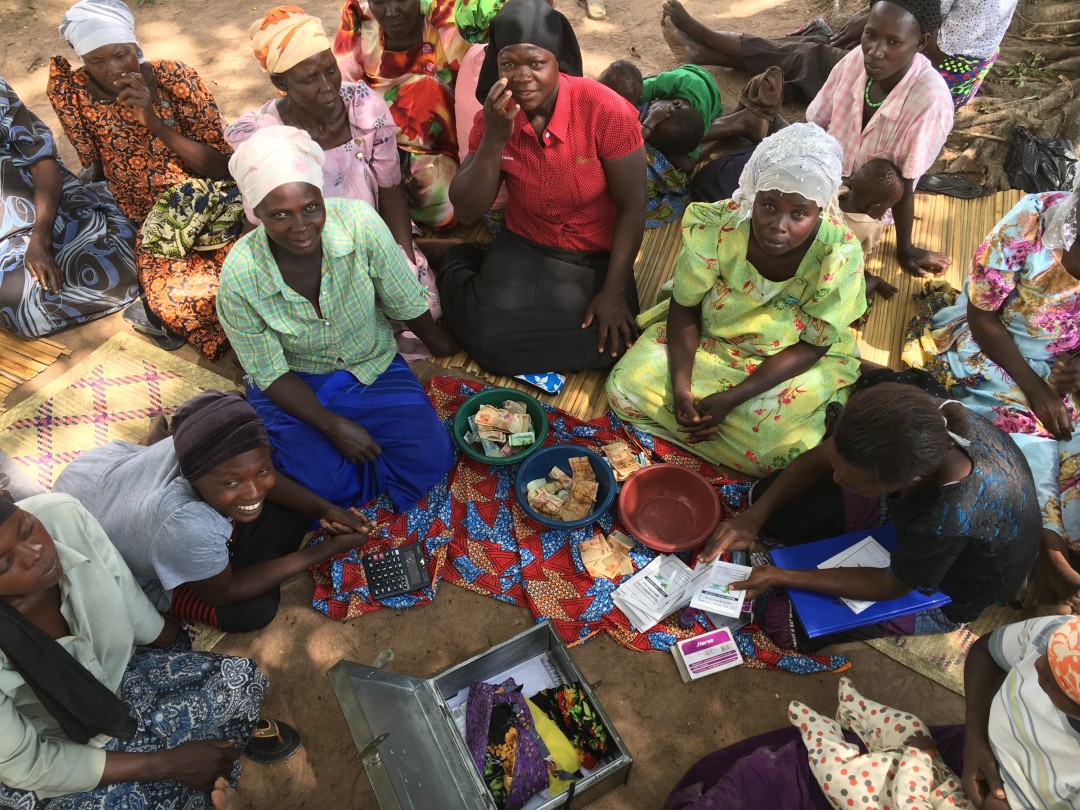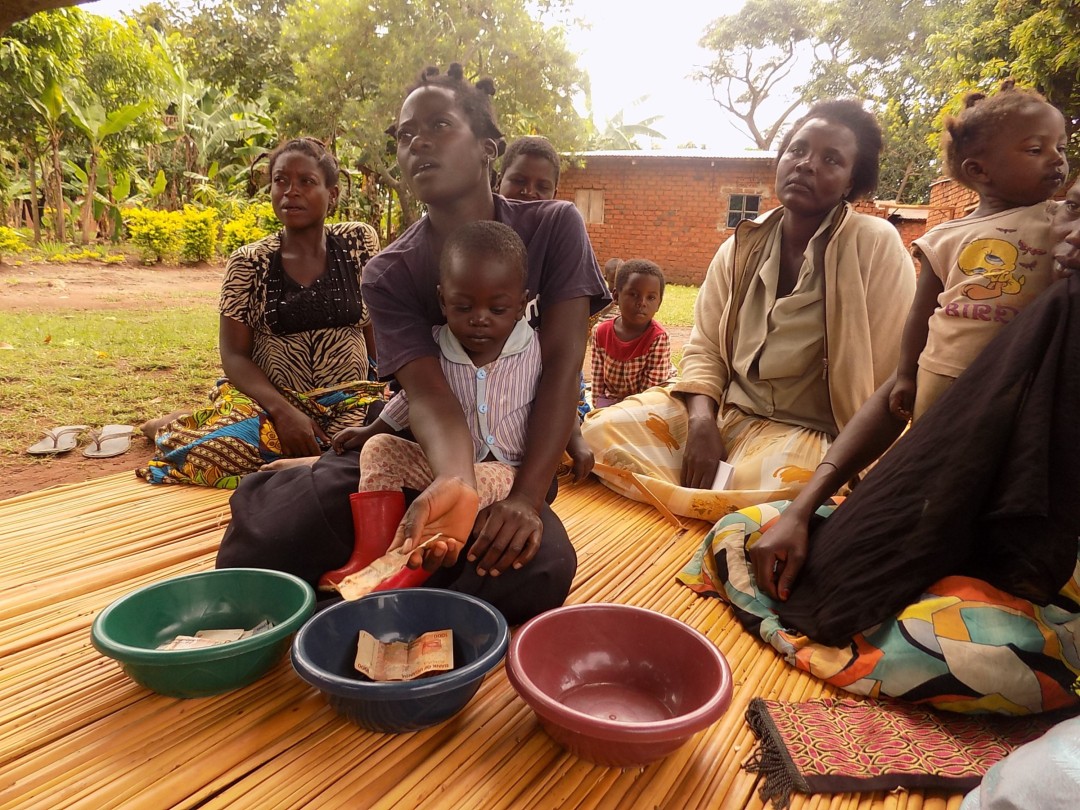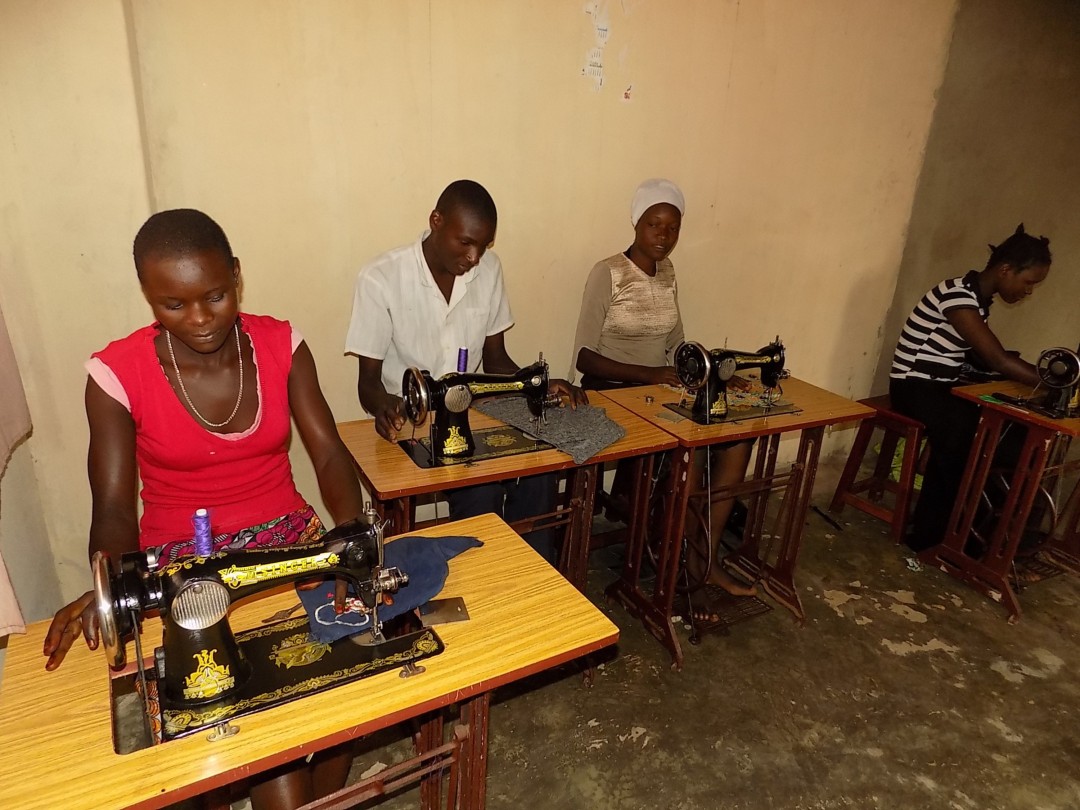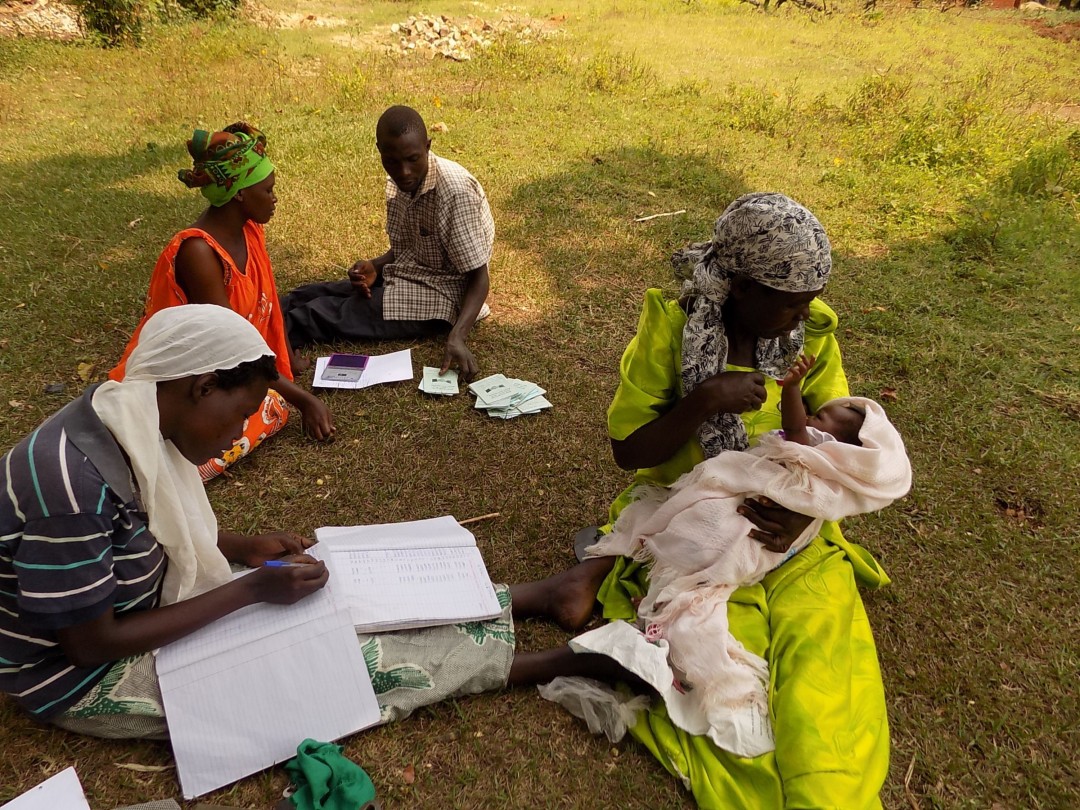Empowering small-scale farmers
The project aimed to provide 1,200 small-scale farmer families in vulnerable rural communities with the opportunity to improve their food security and financial independence. Farmers were to be trained in sustainable farming methods to improve agricultural productivity, food security and income, whilst protecting the environment. Basic agrarian business skills (entrepreneurial skills, basic financial management and microcredit administration) and group work techniques and dynamics were to be included in the training. At their request, a Savings and Credit Cooperative (SACCO) was to be implemented to act as an umbrella organisation for existing Village Savings and Loan Associations (VSLAs).
Although a prolonged drought affected project implementation in early 2017, project activities successfully took place as planned during the year. A total of 1,458 beneficiaries (1,025 female, 433 male) were trained in sustainable agricultural techniques, environmental practices and financial and business management. Beneficiaries were also trained in VSLA administration and group work. At the end of the project, the average household income had increased by 25% and is expected to increase further in the next year. Total savings for the farmer groups had increased by 40%, reflecting the uptake of the VSLA methodology. It was decided that establishing a SACCO for the savings and loans groups was not economically viable. Mobile money activities were being looked into by the partner in the field to reduce the risks of keeping safety boxes.
ICEP (Institut zur Cooperation bei Entwicklungs-Projekten) is an Austrian NGO founded in 1998. It aims to contribute to efforts to alleviate poverty in developing countries.
News
Type
Community Development / Health / EnvironmentDuration
October 2016 – September 2018Location
UgandaWith whom
ICEP (Institut zur Cooperation bei Entwicklungs-Projekten)
Website















Uganda
Population
42.9 million (2017)
Per Capita Income
USD 600/year (2017)
Poverty rate *
21% (2016)
Literacy rate
70% (2016)
Human Development Index
162nd out of 189 countries (2018)
Uganda’s economy has continued to post strong growth, by many developing country standards. It nevertheless remains a very poor country and far from the middle-income status it aspires to. Although the poverty rate has greatly declined from 39% in 2002 to 19% in 2012, the strong population growth has meant that the absolute number of poor people has remained the same. One in three children has no food to eat during the school day and 27% of children under five are stunted. Agriculture accounts for 25% of the country’s GDP and employs 77% of the adult population. However, the productivity of smallholder farmers remains low due to lack of access to services such as credit and insurance and reliance on traditional farming methods.
Sources: World Food Program, UNICEF, World Bank, 2016 Human Development Report, Human Development Indices and Indicators (2018 Statistical Update)
*The percentage of the population living below the national poverty line.